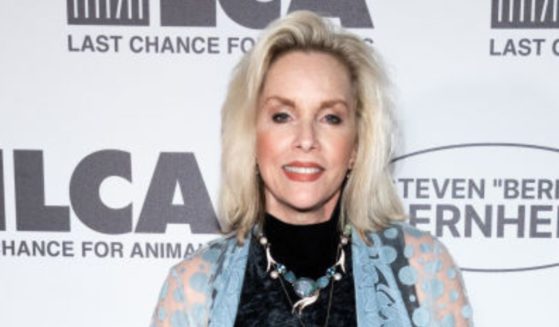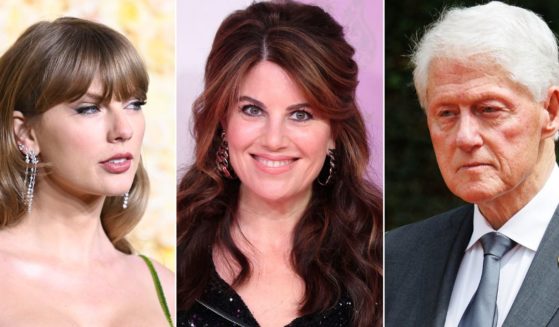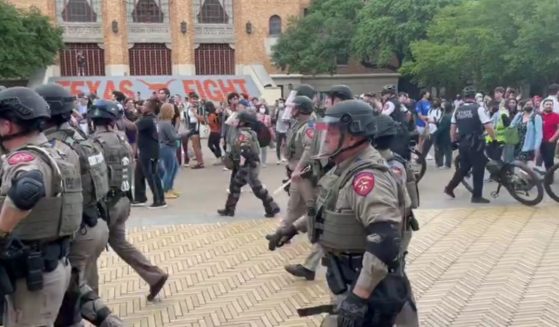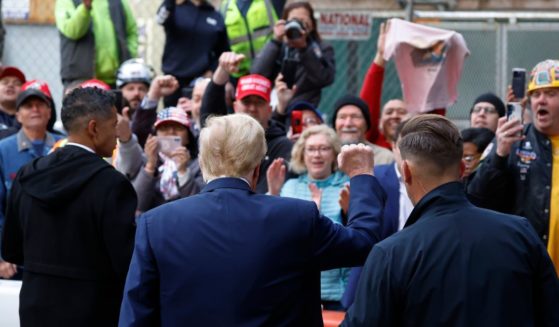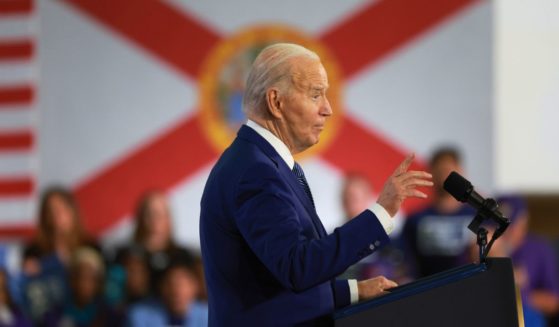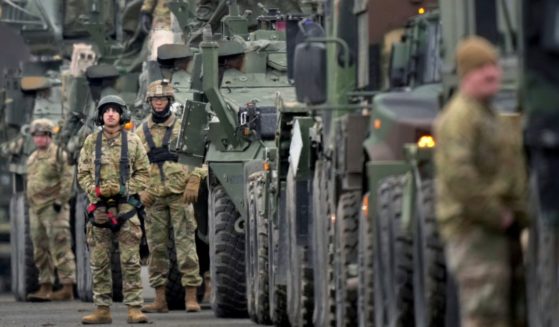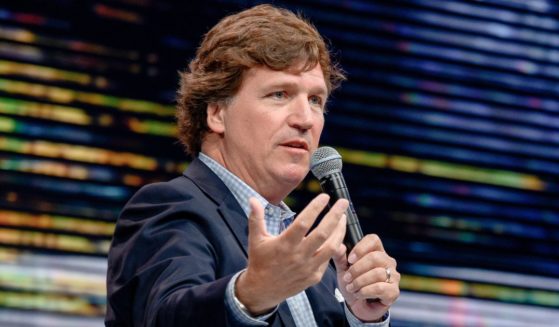Majority of Swing Voters: Democrats Abused Kavanaugh, Used Allegations for Political Gain
A poll taken in the closing days leading up to the midterm elections found that a majority of swing voters believe Democrats used the sexual assault allegations against Supreme Court Justice Brett Kavanaugh for political gain rather than out of genuine concern for accuser Dr. Christine Blasey Ford.
Sixty percent of self-described moderates said that the Democrats were “just using the allegations” for the purpose of blocking Kavanaugh’s nomination, while 40 percent said they were “genuinely concerned,” according to the Harvard-Harris Poll.
Additionally, 55 percent of the women surveyed believe Democrats were just using the allegations.
That number matched the overall findings, with 55 percent of the approximately 1,800 respondents feeling the Democrats were playing politics, while 45 percent said the lawmakers were truly concerned about the allegations.
The late-breaking manner in which the allegations came to light strengthens the case that Democrats were using Ford’s allegations for political purposes.
Ford reportedly contacted her member of Congress, Rep. Anna Eshoo of California, in early July after learning that Kavanaugh was on President Donald Trump’s shortlist for the Supreme Court.
Eshoo then assisted Ford in getting in touch with Senate Judiciary Committee ranking member Sen. Dianne Feinstein.
Ford wrote a letter to Feinstein on July 30 detailing her allegation. The California senator did not raise the matter in a private meeting with Kavanaugh in the middle of August, nor during his confirmation hearing, which took place in the first week of September.
Instead, on Sept. 13, after the confirmation hearing ended, she forwarded Ford’s letter to the FBI, the agency charged with performing a background check.
The move precipitated an additional hearing by the committee to allow Ford and Kavanaugh to testify concerning the allegations.
The committee ultimately voted to move Kavanaugh’s nomination forward, with the proviso that the FBI conduct a supplemental investigation into the allegations before a final full-Senate vote was held.
On Oct. 6, the Senate voted to confirm Kavanaugh in a narrow 50 to 48 vote, which, with a few exceptions, fell along party lines.
Thirty-seven percent of Republican respondents to the Harvard-Harris poll said Kavanaugh’s nomination is the most important factor impacting their vote in the midterms, with an addition 17 percent putting it near their top priorities.
While 36 percent of Democrats reported that the nomination was the most important for them and 23 percent listed it near the top.
A report released by the Senate Judiciary Committee on Saturday found no credible evidence of sexual misconduct by Kavanaugh.
The 414-page document included evidence that Ford may have mistaken Kavanaugh for another man, who said he had a consensual encounter her in the early 1980s, which mirrored in multiple respects the allegation of sexual misconduct she brought against Kavanaugh.
Additionally, committee investigators spoke with a second man, who said that he attended a house party in the summer of 1982, where he “kissed and made out with a woman he met who he believes could have been Dr. Ford. (The man) said that based on old photographs of Justice Kavanaugh he has seen on the news, he believes the two of them share a similar appearance.”
In recent weeks, Senate Judiciary Committee Chairman Chuck Grassley has referred at least three people to the Justice Department concerning apparent false statements they provided to the committee concerning Kavanaugh.
They include Michael Avenatti and his client Julie Swetnick, who claimed and later backtracked on her story that Kavanaugh was present at parties when there were gang rapes and that he was involved in spiking punch to make women more susceptible to sexual advances.
Grassley also referred Judy Munro-Leighton for criminal prosecution who, in an email to the committee three days before Kavanaugh’s confirmation, wrote that he had sexually assaulted and raped her.
Committee investigators then looked into Munro-Leighton’s background and learned she is a “left-wing activist,” who is decades older than Judge Kavanaugh and lived in “neither the Washington DC area nor California, but in Kentucky.”
Under questioning by the committee, Munro-Leighton admitted she “just wanted to get attention,” and her actions were a “tactic” and a “ploy” because she opposed Kavanaugh’s confirmation.
Truth and Accuracy
We are committed to truth and accuracy in all of our journalism. Read our editorial standards.

